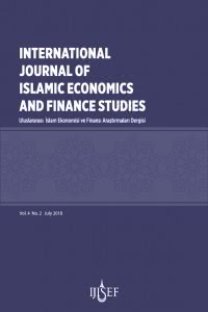An Empirical Analysis of Banking Sector in Pakistan: Islamic Versus Conventional Banks
Purpose – The purpose of this study is to determine the impact of service quality being provided by the Islamic and Conventional banks on customer’s judgments towards their satisfaction level on different parameters of Islamic banks in the region of Lahore, Pakistan. Design/Methodology/Approach – A questionnaire was formulated to obtained data from the 300 respondents using a convenience sampling technique. T-tests, correlation, ANOVA and regression analysis used to test the extent of relationship among service quality (SQL) and customer satisfaction (CS) for the both banking sectors of Pakistan. Findings – The consequences depicts that there is a strong positive association among SQL and CS in the banking segment. Further results illustrates that the extent of affiliation among SQL and CS is larger in Islamic banks as contrasted to conventional banks. Originality/Value/Implications – In Pakistan, there are fewer studies that raised the issue of SQL and CS in Islamic and Conventional banks within in a single study. Also, as Islamic banking is a new phenomena which is getting increasing market share in terms of market size and deposits, so this comparison is also of great importance. This study has a number of inferences for bankers, policy makers and academicians. This principle has been applied in many fields such as contiguity relations, urban schemes, and market regulations. Today, asymmetric information, externalities and market failures may be considered in this context.
- ISSN: 2149-8393
- Başlangıç: 2015
- Yayıncı: Politik Ekonomik ve Sosyal Araştırmalar Merkezi
Sayıdaki Diğer Makaleler
Saud Ahmed KHAN, Muhammad KHALEEQUZZAMAN, Muhammad ISHFAQ, Shahan Zeb KHAN
“İslâm’da Bankacılık ve Finansman” Adlı Kitabın Tanıtım ve Tahlili
İslâm Hukuk Düşüncesinde Bileşik (Mürekkep) Mâlî Sözleşmeler
Muhammad Mahmood Shah KHAN, Bushra SHAFIQ, Farrukh IJAZ
